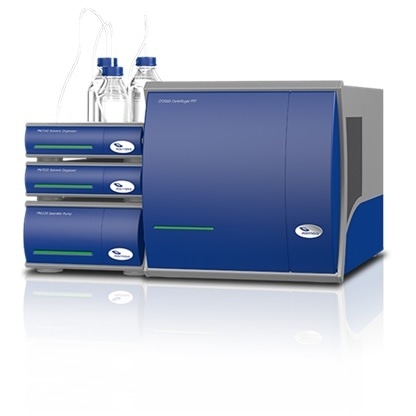Postnova Analytics has published an application study that describes a new method for quantification of liposome encapsulated drug using Centrifugal Field-Flow Fractionation (CF3).

Nanoparticles including liposomes are increasingly used for delivery of drug molecules. During formulation of a liposome around a drug particle, a relatively large amount of free drug may remain unencapsulated and therefore not available for drug delivery via the liposomal carrier. For formulation groups adopting this drug delivery methodology it is important to quantify the amount of free versus encapsulated drug in a product in order to accurately determine the delivered dose of drug to a patient.
In this study, Centrifugal Field-Flow Fractionation coupled with UV-Vis detection was shown to be able to separate and quantify the amount of free drug in a liposome-drug product. The separation data was verified using optical microscopy. The authors conclude that Centrifugal Field-Flow Fractionation shows great promise for separation and quantification of drug particles, as the field of nanomedicine and liposomal drug delivery grows.
The Postnova CF2000 Series system is based on the CF3 principle using a centrifugal field as driving force for the separation. Particles effected by this field are separated by dynamic diffusion based upon both their size and density. This unique feature allows researchers to separate different particle materials having the same particle size. The separation can be further optimized by the use of different eluents and rotation speed programs. The CF2000 has shown great utility for the separation of complex nanoparticle samples in application areas including pharmaceuticals, environmental research, food, cosmetics and agrochemicals.
To download a copy of this study please visit http://www.postnova.com/application-note/view/50.html. For further information on the CF2000 system please contact Postnova Analytics on +49-8191-985-6880 / +44-1885-475007 / +1-801-521-2004 / [email protected].